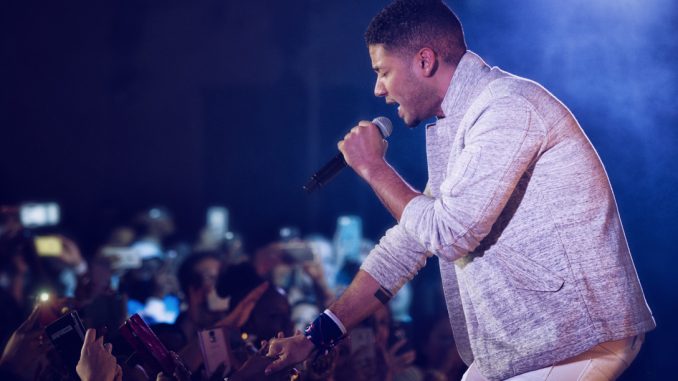

On Feb. 21, “Empire” actor Jussie Smollett was charged by the Chicago Police Department with felony disorderly conduct for allegedly falsifying a police report.
Smollett alleged that two men had beat him, poured bleach on him and tied a noose around his neck — all while shouting “This MAGA country” and many homophobic and racial slurs on Jan. 29. The case took the country by storm as it unfolded.
But Chicago Police later said the attack was arranged by Smollett himself. Law enforcement officials said he paid two brothers $3,500 because he was unhappy with his salary and wished to promote his career.
Although his case has been reported on by many news outlets and widely discussed on social media, hate crimes generally don’t get this much coverage. While Smollett’s attack is allegedly a hoax, hate crimes are still very much real and have been on the rise the past few years; the number of hate crimes increased 17 percent in 2017, Vox reported.
We can’t let this be a boy-who-cried-wolf situation, which could discredit future victims of hate crimes.
Ernest Owens, a writer at large for Philadelphia Magazine and Black member of the LGBTQ community, told The Temple News that regardless of Smollett’s celebrity status, the reported attack struck nerves in people, and that’s why it was all over the news.
“Due to the current political climate that we’re in, we witness hate crimes throughout the country,” Owens said. “A lot of this is being correlated with the Trump administration.”
“We’re also at a time where people are talking about a lot of racial injustice and also LGBTQ,” Owens added. “All of these elements that we’re facing nationally, I think collided with identity and with news, and social media played the role in this colliding.”
Smollett still has not had his day in court, and we still don’t have all the details about the alleged crime. Evidence gathered by the Chicago Police Department was enough to charge Smollett, but he maintained his innocence during an apology to cast and crew members of “Empire,” CNN reported.
But that didn’t stop conservative commentator, Anne Coulter, from tweeting, “Alright, this particular hate crime turned out to be a hoax, but let’s remember, ALL OF THEM are hoaxes.”
People like Coulter likely had their opinions before the Smollett incident, Owens said. And Jenice Armstrong, the metro columnist for the Inquirer, told The Temple News that if Smollett is found guilty, people will try to point to him as an example of false reporting.
But people who are not set in their ways shouldn’t be swayed by one possible false report.
Although Smollett was charged with filing a false report, hate crime hoaxes are very rare compared to the reality that hate crimes are and have been fairly common throughout history. After all, less than one percent of hate crimes are false.
“The glee that surrounded a lot of his arrest, a man who may or may not have told the truth, that kind of negativity existed before Smollett was born,” Armstrong said.
“Those who believe victims will continue to believe victims,” Owens said. “Those who are trolls on the internet and skeptics, they will continue to use Jussie Smollett as a shining example of hoaxes.”
Police agencies should continue to investigate each hate crime seriously, despite the very small number of false reports. This case involves just one individual, and it should not determine the outcome of future victims.



Be the first to comment